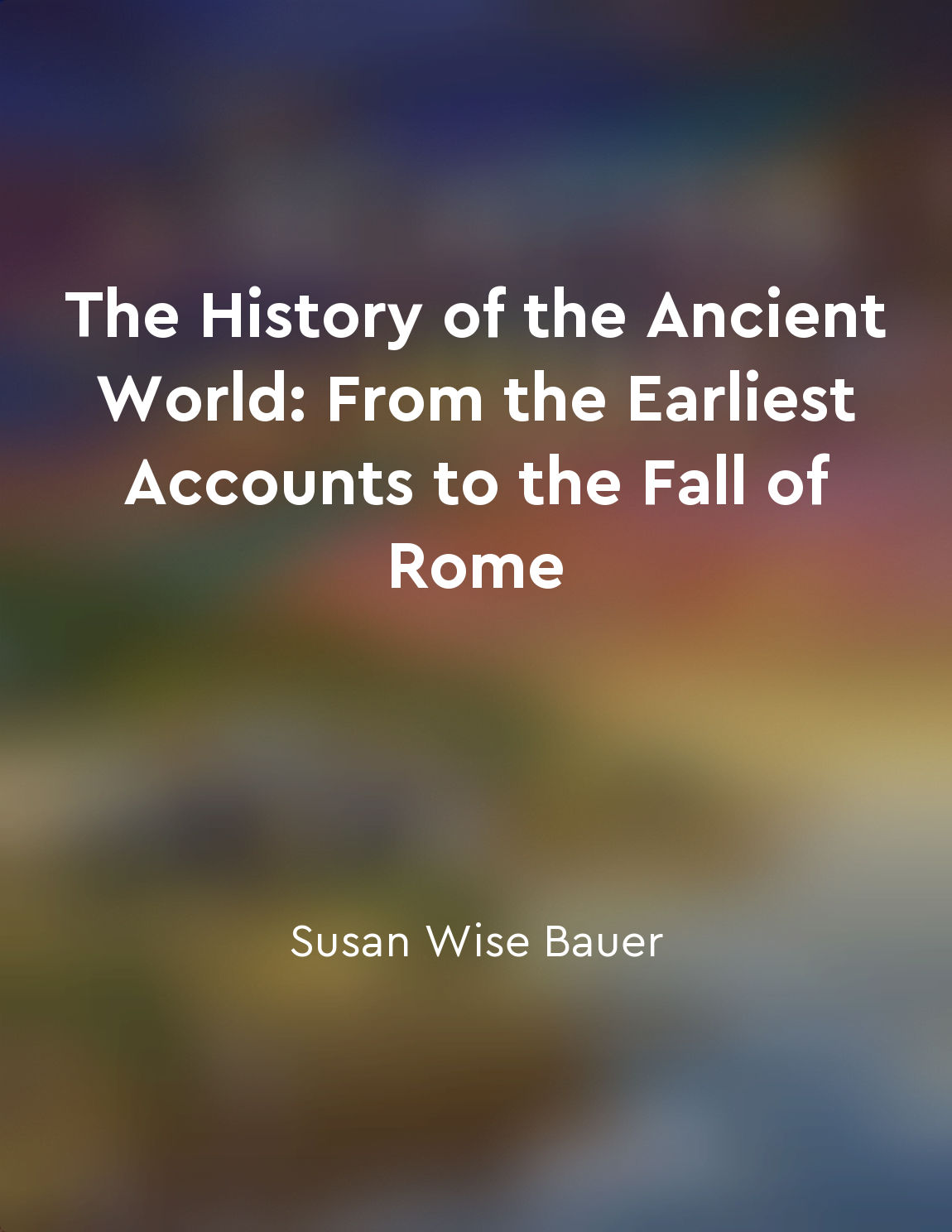Caesar's assassination was a result of political intrigue from "summary" of History of Julius Caesar by Napoleon III (Emperor of the French)
The assassination of Caesar was not a sudden act of passion or the result of a personal vendetta. Rather, it was the culmination of a long-standing political conspiracy fueled by envy, ambition, and fear among the Roman elite. The conspirators, led by Brutus and Cassius, saw Caesar's growing power and popularity as a threat to the traditional Republican values of Rome. They believed that by eliminating Caesar, they could restore the Republic to its former glory and prevent the rise of a tyrant. The plot to assassinate Caesar was carefully planned and executed with precision. The conspirators took advantage of their positions of influence within Caesar's inner circle to gain his trust and access to him. They exploited his willingness to overlook their prev...Similar Posts
Pandemics as catalysts for societal change
The cataclysmic events of pandemics throughout history have often served as powerful catalysts for profound societal change. Th...
Ophelia's descent into madness explored
In the play "Hamlet," Shakespeare portrays Ophelia's descent into madness with great depth and complexity. Through the interact...

Examine the development of new forms of government in Europe
In the centuries following the fall of the Roman Empire, Europe witnessed a significant evolution in the forms of government. T...
Hamlet's confrontation with mortality
In the play, Hamlet is constantly grappling with the idea of mortality. This theme is woven throughout the text, as Hamlet cont...
Byzantine Emperor Justinian's reconquests
In the sixth century, the Byzantine Emperor Justinian embarked on a ambitious campaign to reconquer the lost territories of the...
His reign marked the beginning of the Roman Empire
Julius Caesar's ascension to power changed the course of Roman history. His leadership transformed the Roman Republic into an e...
Political corruption spread throughout Roman society
The corruption of the best things gives rise to the worst. The Roman Empire, once a shining example of power and civilization, ...
The Battle of Actium led to the demise of Antony and Cleopatra
The Battle of Actium was a pivotal moment in the history of Julius Caesar. It marked the beginning of the end for Antony and Cl...
The adoption of Greek culture influenced Roman society
The Roman Empire, once mighty and powerful, found itself increasingly drawn to the allure of Greek culture. The Greeks, with th...
The lack of a strong centralized government contributed to Rome's fall
The Roman Empire, once a mighty force that dominated vast territories, faced a gradual decline that eventually led to its fall....
